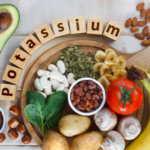
Nutritional yeast originates from a type of yeast known as Saccharomyces cerevisiae. There is another type of yeast species, which is called brewer’s yeast. In spite of the fact that individuals once in a while utilize the terms reciprocally, it is fundamental to take note of that nutritional yeast isn’t equivalent to brewer’s yeast. As the name recommends, brewer’s yeast is a side-effect of the lager making procedure, and it develops on bounces.
Producers can develop nutritional yeast on an assortment of sources, including whey, blackstrap molasses, and sugar beets. It is more like the yeast that individuals use in preparing, yet it experiences a warming and drying process that renders it idle. Nutritional yeast is sans dairy and normally without gluten. Subsequently, it tends to be a valuable enhancement for individuals with nutritional hypersensitivities, just as those on limited weight control plans. It is likewise low in fat and contains no sugar or soy.
1. Helps Immune Function
Nutritional yeast gives the mixes beta-1,3 glucan, trehalose, mannan, and glutathione, which are all related to improved insusceptible capacity. Truth be told, creature models have discovered that these mixes could help lessen the danger of contamination in pigs by blocking hurtful microscopic organisms from connecting to the covering of the digestive organs.
One creature model distributed in Anticancer Research even found that beta-glucan could be helpful in the treatment of lymphoma in mice by diminishing tumor development. Dr. Alan Christianson reported that nutritional yeast gives a noteworthy portion of minerals, for example, iron.
This is particularly valuable for competitors who train over four hours out of each week, as it can help forestall iron inadequacy. Nutritional yeast likewise contains selenium, which fixes cell damage, and advantage rich zinc, which helps in tissue fix, wound healing and keeps up our feeling of taste and smell. Consider adding nutritional yeast to your diet since it offers benefits to your health.



